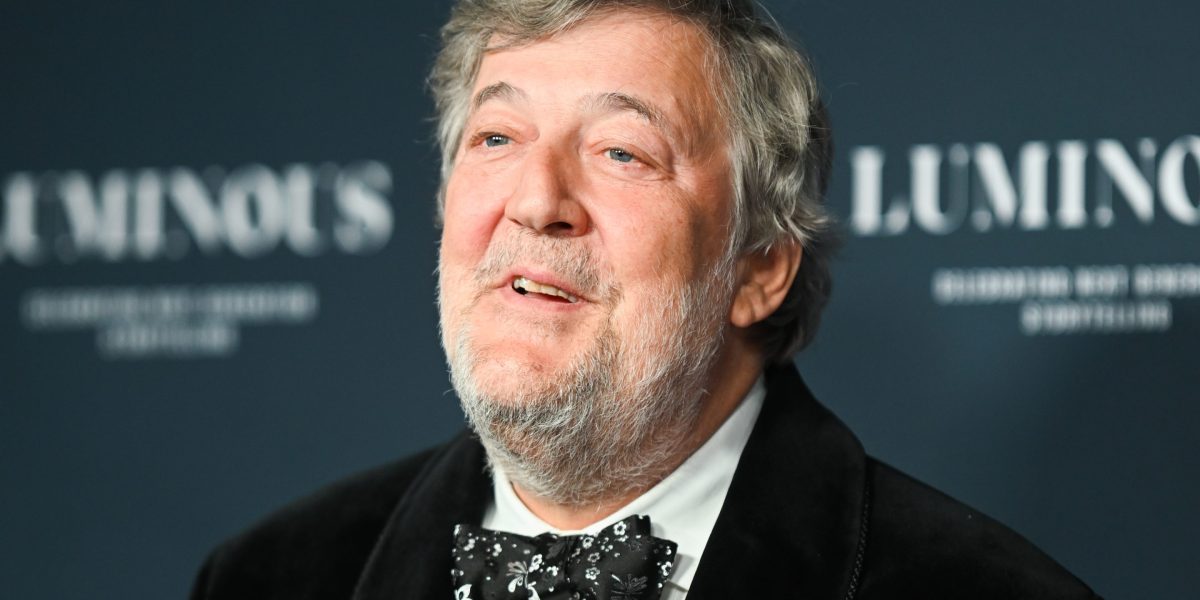I think, at some point, we’ll probably need legislation mandating consent for this kind of thing, at least for any non-trivial purposes. I’d wager that most people find this generally uncomfortable and would support a general concept of a right to one’s own identity.
It gets tricky, though. For example, what if the AI was trained on recordings of voice impersonators (with consent)? We may be limited to banning companies from promoting the AI voices as being specific people…
Years ago, Moes Southwest had a problem like this. Their decor featured images of artists, but it turned out they did not have the rights and were sued. So they ran a celebrity look alike competition and used photos of the winning look alikes instead.
This is the best summary I could come up with:
Among those warning about the technology’s potential to cause harm is British actor and author Stephen Fry, who told an audience at the CogX Festival in London on Thursday about his personal experience of having his identity digitally cloned without his permission.
Speaking at a news conference as the strike was announced, union president Fran Drescher said AI “poses an existential threat” to creative industries, and said actors needed protection from having “their identity and talent exploited without consent and pay.”
As AI technology has advanced, doctored footage of celebrities and world leaders—known as deepfakes—has been circulating with increasing frequency, prompting warnings from experts about artificial intelligence risks.
At a U.K. rally held in support of the SAG-AFTRA strike over the summer, Emmy-winning Succession star Brian Cox shared an anecdote about a friend in the industry who had been told “in no uncertain terms” that a studio would keep his image and do what they liked with it.
Oscar winner Matthew McConaughey told Salesforce CEO Marc Benioff during a panel event at this year’s Dreamforce conference that he had concerns about the rise of AI in Hollywood.
A spokesperson for the Alliance of Motion Picture and Television Producers (AMPTP), the entertainment industry’s official collective bargaining representative, was not available for comment when contacted by Fortune.
The original article contains 911 words, the summary contains 213 words. Saved 77%. I’m a bot and I’m open source!
Modern models need about 5sec of audio to replicate a voice. The days when you needed a large amount of audio for replication are long gone. Same for faces by the way, the original Deepfake needed hundred of images and hours of training, now you can do it with as little as a single good image instantly. Software to automatically clone the voice, translate the audio into another language and adjust the lip motion exists as well, again without any lengthy training or material, just needs the clip you want to change.
Where the whole thing gets interesting is in remixing. If you stolen Stephen Fry, sure that’s bad and there might be laws against it. What if you remix Stephen Fry and Patrick Steward into a brand new AI-persona? What if you remix a Stephen Fry sound-alike out of other peoples voices without ever touching his voice?
This whole issue gets very blurry very fast.
Do you have a reference for the 5secs of audio? And what would the quality of the ai be? I mean it would have to infer a lot of training just given 5 seconds of audio.
Here is an alternative Piped link(s):
Piped is a privacy-respecting open-source alternative frontend to YouTube.
I’m open-source, check me out at GitHub.
And re: remixing:
How long until enough people put recordings of their voices out with a CC0 license that you can legally digitally remix any voice you want?
I hope he gets it back
I’m imagining this in “Little Mermaid” style.
We need to do this for Attenborough or nature documentaries will never be as good.
Theres already an AI Attenborough that narrates Warhammer 40k lore. It’s brilliant





